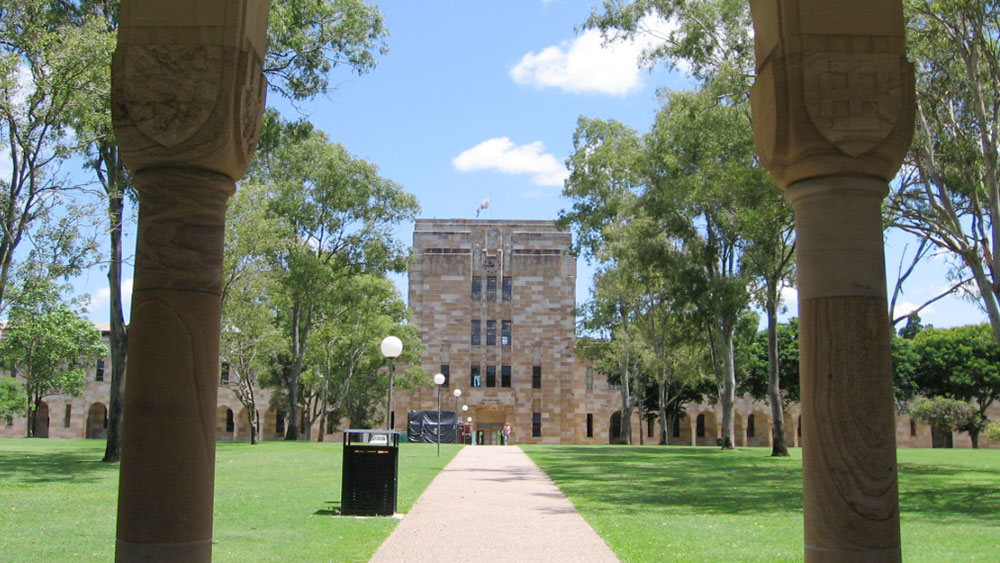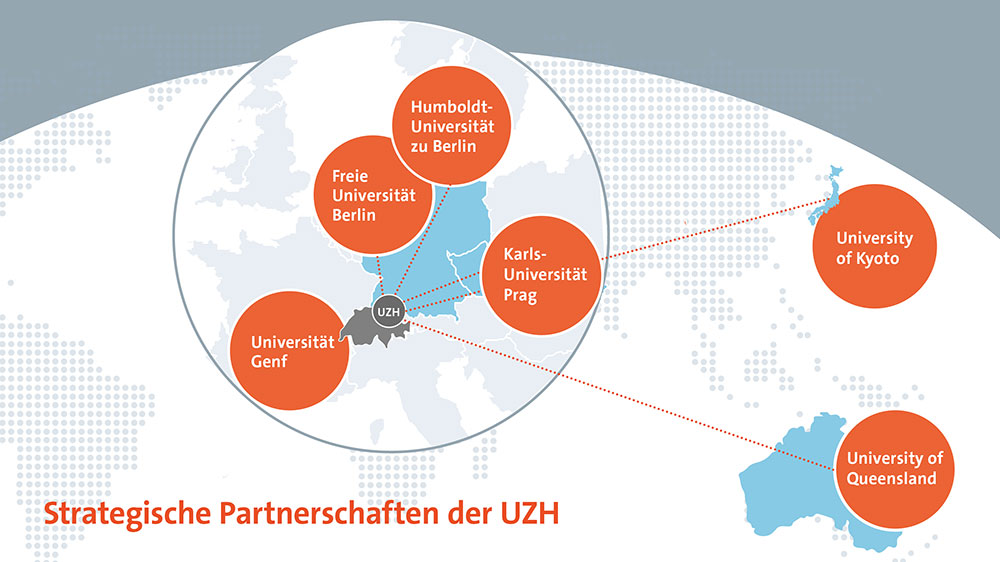UZH Teams Up with Leading Australian University
The University of Queensland (UQ) in Brisbane is an architectural gem, its campus neatly nestled into a loop of Brisbane River. But this isn’t the only reason the university is a popular place to study and teach. The Australian university ranks among the world’s leading research and teaching institutions. In the 2019/2020 academic year, UQ ranked 47th in the QS World University Rankings.
As a member of the Group of Eight, a coalition of leading Australian research-intensive universities, the university boasts an impressive research network. UQ’s network also extends abroad, and thanks to its membership in Universitas 21, it already shares a connection with UZH.
UZH and UQ have now decided to step up their ties. On 22 February, UQ Vice-Chancellor Deborah Terry and UZH President Michael Schaepman signed a plan to further deepen the two universities’ cooperation under a strategic partnership.
“The strategic partnership with the University of Queensland is an opportunity for us to advance our collaboration with a research-intensive university in Australia and work together more closely in a variety of promising fields,” UZH President Michael Schaepman explains.
Given the range and relevance of UQ and UZH’s joint research and teaching, both universities are confident that their further collaboration can have a meaningful global impact, as reflected by previous joint research projects.
Combating illegal trade
One such project is in the field of law. UZH Vice President Christian Schwarzenegger has been collaborating with Andreas Schloenhardt from the UQ Law School since 2012. Together they developed an international crime law course for Master’s degree students. In 2019, the course covered illegal trade in protected wildlife and plants, among other topics. Unclear legal situations, weak criminal prosecution and inadequate judicial procedures mean protected species are threatened all over the world. At present there are no global guidelines to prevent these illegal acts. The Master’s students explored the causes, typical features and actors of illegal wildlife trade, and analyzed counter measures and the various national and international legal structures that are in place to fight these crimes.
“The participating students have the opportunity to take an in-depth look at a topic that is of high relevance for today’s society, at the same time as acquiring international contacts,” says Christian Schwarzenegger. “They also receive guidance through special workshops on conducting research, on academic writing and on publishing studies.” The aim is to enable the students to produce outstanding academic papers.
Healthy aging and high yielding plant varieties
UZH and UQ also complement each other in the field of healthy aging, according to UZH professor of gerontopsychology Mike Martin. By joining forces with UQ, UZH has gained a key partner for its global network on healthy aging, which it coordinates together with the World Health Organization. UQ has already been certified as an “age-friendly university”. UZH can only benefit from this, believes Mike Martin. Vice versa, researchers from down under stand to benefit from UZH’s expertise in digital health monitoring in old age and neuropsychological longitudinal studies on healthy aging.
UQ and UZH have also been cooperating in the field of agricultural and plant sciences. This is the field of UZH developmental genetics expert Ueli Grossniklaus. Researchers from the two universities have teamed up for the ground-breaking Hy-Gain project, which focuses on breeding plant species that have significantly higher yields and are more sustainable. To achieve this, an international team will attempt to develop self-reproducing hybrid cowpea and sorghum crops, both of which are major staple crops in Africa. The research will benefit smallholders in sub-Saharan Africa.
Further joint projects between UQ and UZH cover the fields of pediatric critical care medicine, big data, neurosciences as well as medical imaging and spectroscopy.
Strategic partnerships
UZH has already formed strategic partnerships with Freie Universität Berlin, Humboldt University of Berlin, Charité Universitätsmedizin Berlin, Charles University Prague, Kyoto University and the University of Geneva. Strategic partnerships are an important part of the University of Zurich’s internationalization strategy and lead to greater cooperation with comparable institutions abroad. Core efforts focus on promoting joint research projects, fostering junior researchers and creating an attractive range of courses to offer students.


